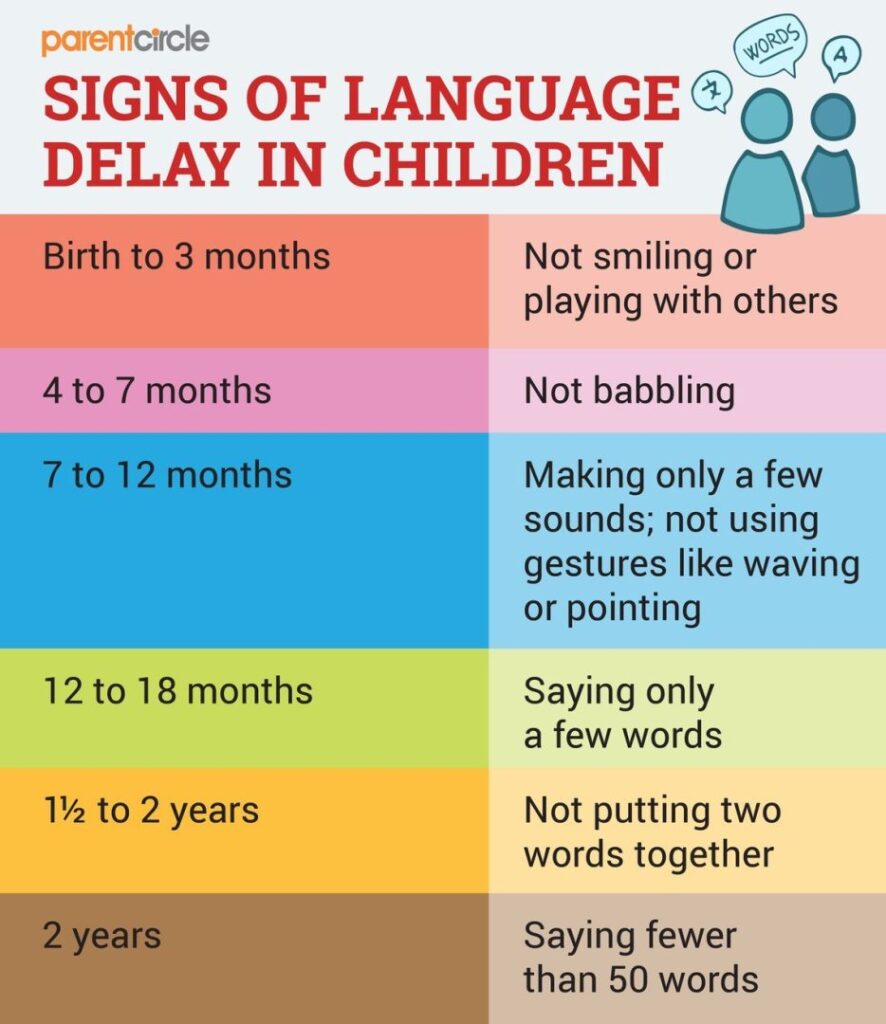Toddlers are basically free and unemployed, so they are easily attracted to the surrounding audio-visual devices.
Televisions, phones, and tablets are everywhere! For busy parents, these devices can give quick distractions to a child and keep them playing by themselves for a while.
However, their minds are still in the process of maturing, and too much screen time can have adverse effects on their speech development.
The Effects of Screen Time on Toddlers

Correlation versus causation is a tricky subject. So, it is difficult to determine whether too much screen time will affect language development in toddlers.
However, we can see from ourselves that when we sit in front of the screen too much, our eyes and brain become quite dull. Obviously, screen time affects us badly! The same for our children!
There is some evidence that more screen time can lead to a higher risk of expressive language difficulties: As little as 30 extra minutes on an iPad/iPhone can increase this risk by as much as 49%.
Children under 3 years old are still in the long process of developing, so parents need to be very careful when exposing children to screens. The moving subjects on the screen are too fast. They can cause children to become hyperactive, inattentive, and, more seriously, speechless!
The more toddlers view content on handheld devices, the more likely they are to have language delays. The more your child watches the video, the less he will speak!
Warning Signs of a Speech or Language Delay in Toddlers

Each child will have a different language or speech development progress. However, pay attention if your child has the following signs to seek help:
- By 12 months, they’re not using gestures.
- By 18 months, they have trouble imitating sounds or understanding simple verbal requests.
- By 2 years, they can only copy others’ actions or speech without producing words or phrases spontaneously. They might say only some sounds or words repeatedly and can’t use oral language to communicate more than their immediate needs.
- By 30 months, they’re saying fewer than 300 words and aren’t using action words and adult grammar.
How Can Parents Help
Children need parents by their side to develop comprehensively! Here are some tips:
- For children under 2 years old, parents should not let children use mobile devices. Children 2-5 years old, should only use no more than 60 minutes/per day
- Parents should talk, read, sing, or dance with their toddlers as much as possible. Toddlers should have direct contact with people. You can encourage older children to talk to the younger ones.
- Toddlers can complete other activities like drawing, coloring, and building on their own. They can tell you what they do and how creative they are!
- Use everyday situations: To build on your child’s speech and language, talk through the day. Name foods at the grocery store, read small stories in colored books, explain what you are doing as you cook a meal or clean a room, and point out objects around the house…
- Choose interactive TV shows suitable for your children: Peppa Pig, Mickey Mouse Club…
- If you are worried your child is slow in speech, bring your concerns up with your pediatrician. Professionals will establish goals with helpful therapy exercises, and training.
It is essential to let your child speak!

Lead, guide your toddler to say – express what he wants. Help your child put his thoughts into concrete words. Do not satisfy your child’s every need right away.
The first time will be very lengthy, roundabout, and redundant. As your child practices gradually, he will speak clearly and politely.
Here are some examples:
- Mom, I’m thirsty!
- Really, so what?
- I want to drink water
- Ok. So, you can drink water
- But I don’t have water!
- Why don’t you have water?
- Because the water is too high, I can’t get it!
- So now what?
- Can you take it for me?
You can wait until this point and bring water for your child…
Conclusion
Learning skills and language can vary among kids. Every child has their own rate of growth and development. Sadly, screen time does not promote your child’s language development, so children can use mobile devices for very limited amounts of time.
The best present you can give your children is your time! Therefore, whenever you have free time, interact with them to help your children learn and grow better.
FAQ
Can phones cause speech delay in toddlers?
In the digital world today, children are easily exposed to technology devices which can lead to speed delays more commonly. Spending too much time on phones or any other audio devices can cause speech delays in toddlers.
What are the symptoms of too much screen time?
Too much screen time can cause tiredness, loss of energy, poor mood, headaches, dry or watery eyes, and light sensitivity. Children should not be exposed to more than 1 hour of screen time a day.
Can too much screen time cause autism in toddlers?
According to a study, longer exposure to screen time among 1-year-old boys was “significantly associated” with autism spectrum disorder at 3 years old.
How do you fix a speech delay in toddlers?
If you find your toddler with a speech delay, the following things can help:
- Focus on communication: talk with your child and encourage him/her to imitate your sounds and gestures.
- Read books and ask your child to listen to you while you are reading
- Show everyday situations to build your child’s speech and new vocabulary
- Get a doctor consultation to help your child improve language development
ALSO READ: How Can I Monitor my Child’s Text Messages Without Them Knowing







